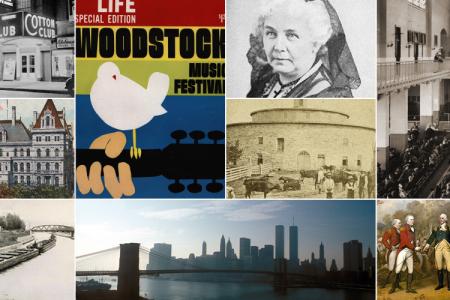ALBANY — The New York National Guard on Tuesday marked the 100th anniversary of Henry Johnson's defeat of nearly two dozen German soldiers, an act that won him the Medal of Honor 97 years later.
Johnson was one of the first American heroes of World War I and he was among the last to be recognized by his country.
In Albany, Johnson's story is legendary, retold in recent decades as his son and veterans groups and then politicians fought to win for him recognition for fighting off nearly two dozen German soldiers and saving a fellow soldier May 15, 1918 in France's Argonne Forest.
It took 97 years for Johnson's valor to be fully recognized because of a combination of poor record keeping and Jim Crow-era racism, only to eventually be pushed into the light after a drawn-out effort.
Henry Johnson moved to Albany as a child and worked various jobs, including as a railroad porter. He enlisted on June 5, 1917.
On May 15, 1918, Johnson was standing sentry in the Argonne alongside Private Needham Roberts.
The inexperienced pair had drawn the midnight to 4 a.m. shift, charged with watching the edge of the French lines. The two were members of the 369th Infantry Regiment, an all-black unit that had been integrated into the French Army because white American troops would not fight alongside them.
An hour into their watch, a German sniper began firing at them. Johnson later told an interviewer that he laid out a box of grenades nearby, preparing for further trouble.
During the attack, Roberts was seriously wounded by a German grenade. He was unable to do more than hand Johnson additional grenades as the Germans advanced.
Using grenades, a rifle and finally a large machete-like knife, Johnson fought off close to two dozen German soldiers and saved Roberts from being captured. The final bloody tally is uncertain but the accepted narrative is that Johnson, who stood only 5-foot-4, killed at least four Germans and wounded as many as 20 more. For his part, Johnson suffered 21 wounds in the hour-long fight, most of them from knives and bayonets.
The skirmish earned Johnson the nickname "Black Death."
In an interview months later, he seemed largely unfazed by what he had done, summing up the tale matter-of-factly.
"That's about all. There wasn't so much to it," he said.
In recognition of his bravery, France awarded him the Croix de Guerre with the gold palm, the country's highest military honor. Johnson became the first American to receive the award. Back home, his story was used as a recruiting tool to draw more black Americans to enlist.
When the 369th, nicknamed the Harlem Hellfighters, was sent home at the end of the war, they were greeted as heroes with a parade in New York City. They had spent 191 days at the front, the most of any American unit in the war.
But the goodwill toward Johnson was short-lived. He kicked off a promotional speaking tour in St. Louis after detailing the discrimination that black troops faced during the war, including being treated as servants, rather than soldiers. He struggled to hold a job because of his physical limitations from war wounds. His wife left him and he fell into alcoholism. He died July 1, 1929 at Walter Reed hospital in Washington, D.C., from myocarditis, a type of heart disease.
He was buried at Arlington National Cemetery under his birth name, William Henry Johnson.
A relentless push by Albany veterans and his son, Herman Johnson, forced the country to recognize Johnson properly.
In 1996, President Bill Clinton awarded him a Purple Heart. In 2002, he was awarded the Distinguished Service Cross.
Finally, a staffer for Sen. Charles Schumer discovered a letter from Gen. John J. Pershing, praising Johnson's actions. That recognition of Johnson's valor from the leader of American troops in World War I fulfilled the final requirement and in 2015, President Barack Obama added Johnson to the list of Medal of Honor winners.



